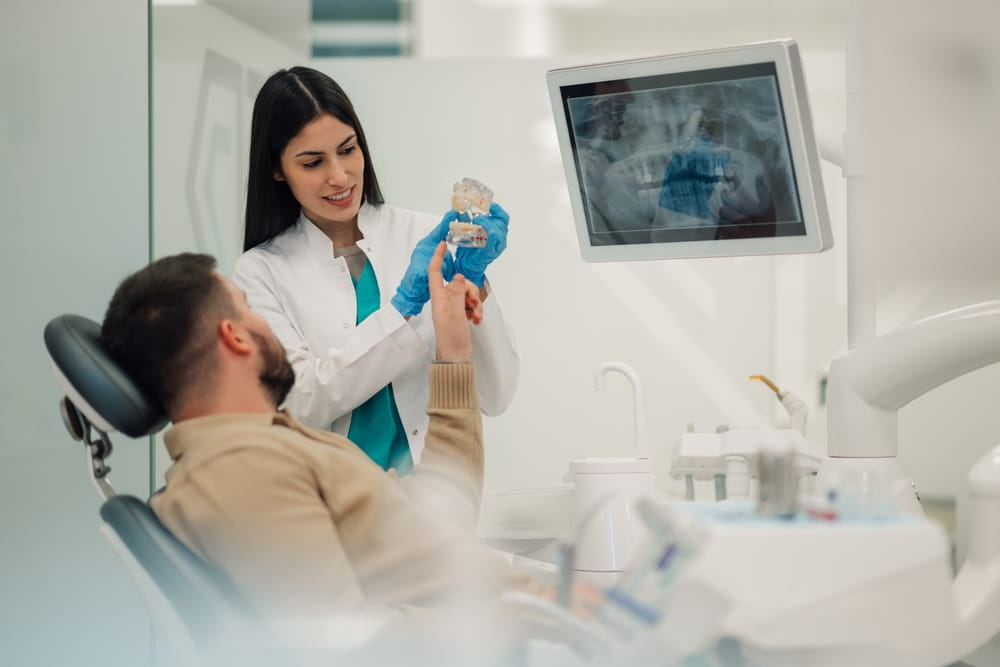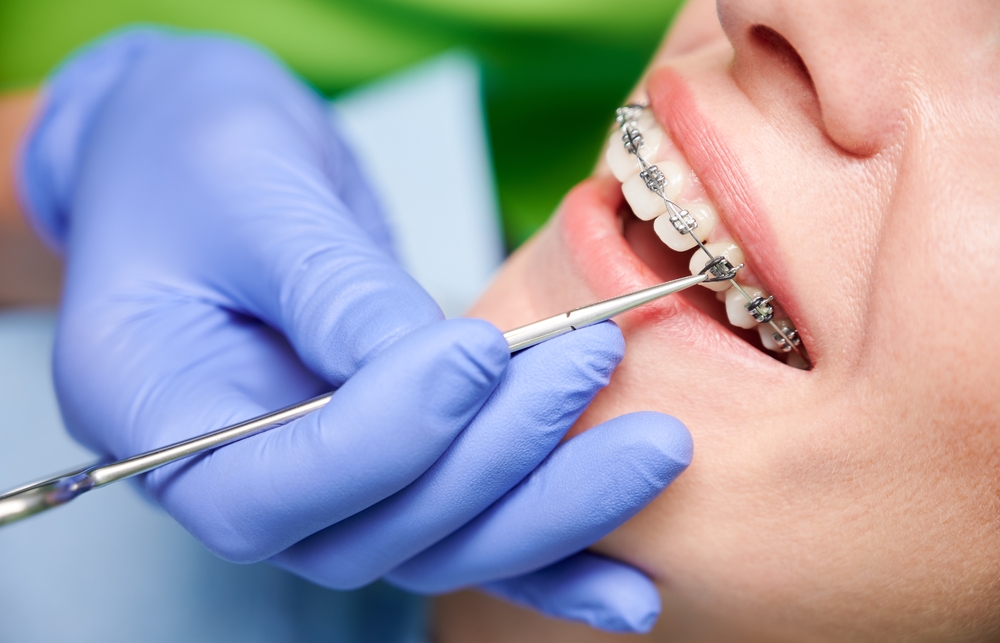Orthodontic health is a key aspect of your child’s overall well-being, but many parents wait until the teenage years to address dental concerns. In reality, early orthodontic screening can make a significant difference in a child’s dental development and long-term health. The American Association of Orthodontists recommends that children have their first orthodontic evaluation by the age of seven. At Davis Family Orthodontics, Dr. Laura Davis emphasizes the importance of early screening for children in Lawrenceville, Morrow, Stone Mountain, and Loganville, GA. Early assessment allows for proactive care, preventing complex issues from developing later.
Why Early Screening is Essential
Early orthodontic screening serves multiple purposes beyond just diagnosing potential problems. It provides a comprehensive understanding of how a child’s jaw and teeth are developing, allowing orthodontists to catch and address issues early. Some dental problems are easier to correct while a child’s jaw is still growing, making treatment less invasive and more effective.
Identifying Problems Before They Escalate
One of the primary advantages of early screening is the ability to identify potential orthodontic issues before they become more complicated. Common concerns that can be detected early include:
- Crossbite: A crossbite can affect both the front and back teeth, leading to uneven wear, jaw pain, and asymmetrical jaw growth if left untreated.
- Overbite or Underbite: Early detection of an overbite or underbite allows orthodontists to guide jaw development as the child grows, reducing the need for more aggressive treatment later.
- Crowded Teeth: Crowding can be identified before all permanent teeth have erupted. Addressing crowding early can prevent the need for extractions or more extensive treatments in the future.
- Thumb Sucking and Tongue Thrusting: These habits can significantly impact tooth alignment and jaw growth. Early intervention can help prevent long-term effects on the bite.
The Ideal Age for Orthodontic Screening
Although the first orthodontic evaluation is recommended by age seven, some children may benefit from even earlier assessments, especially if they exhibit certain symptoms:
- Early loss of baby teeth (before age five)
- Persistent thumb sucking beyond the age of five
- Difficulty chewing or biting
- Breathing through the mouth instead of the nose
- Speech difficulties
By this age, children typically have a mix of baby teeth and permanent teeth, making it easier to assess the development of the jaw and detect emerging orthodontic problems.
The Advantages of Early Orthodontic Interventions
Orthodontic care is not just about aesthetics; it’s about fostering proper jaw development, avoiding future complications, and supporting healthy oral habits. Here are some key benefits of early interventions:
1. Guiding Jaw Growth
Early orthodontic screening enables orthodontists to use appliances like expanders or space maintainers to guide jaw growth. This ensures that there is enough space for permanent teeth to emerge correctly and reduces the risk of crowding or impacted teeth.
2. Improving Facial Symmetry
Certain orthodontic issues can affect facial symmetry, leading to an uneven appearance. Corrective measures taken during a child’s growth phase can enhance facial balance and symmetry, promoting a natural and proportional facial structure.
3. Reducing the Risk of Trauma
Protruding teeth are more susceptible to injuries, especially in active children. By addressing alignment early, orthodontic treatment can protect teeth from potential trauma, particularly during sports or play.
4. Simplifying Future Treatments
Early intervention can make future orthodontic treatments simpler and less time-consuming. Correcting jaw development early often eliminates the need for complex procedures like jaw surgery or tooth extractions during the teenage years.
5. Building Self-Confidence
Dental issues can affect a child’s confidence, especially during critical social and developmental years. By correcting orthodontic problems early, children can feel more comfortable and confident in social interactions, leading to a positive self-image.
The Screening Process: What to Expect
When you bring your child for an early orthodontic screening at Davis Family Orthodontics, Dr. Laura Davis will perform a comprehensive examination to evaluate the following:
- Alignment of the Teeth: Checking for early signs of crowding, spacing issues, or abnormal tooth development.
- Jaw Growth: Observing the growth pattern of the upper and lower jaw to ensure proper alignment and function.
- Bite Evaluation: Assessing the bite to detect any issues with how the teeth meet, including overbite, underbite, or crossbite.
- Oral Habits: Identifying habits like thumb sucking or tongue thrusting that could affect dental and jaw development.
If Dr. Davis identifies any concerns, she will recommend a personalized treatment plan to address the specific needs of your child. Early treatment doesn’t always involve braces; sometimes, it involves monitoring growth and planning for the optimal time to begin active orthodontic treatment.
Common Early Orthodontic Treatments
Depending on the diagnosis, several orthodontic options can be employed to address issues identified during early screenings:
Palatal Expanders
These appliances help to widen the upper jaw, creating more space for the proper alignment of teeth. Expanders are particularly effective in young children when the jaw is still malleable.
Space Maintainers
When a child loses a baby tooth prematurely, a space maintainer can be used to hold the space open for the permanent tooth, ensuring proper alignment.
Partial Braces
Sometimes, partial braces are recommended for children with specific alignment concerns. These braces focus on correcting just a few teeth or a particular part of the bite.
Habit Appliances
Habit appliances are designed to discourage behaviors like thumb sucking or tongue thrusting, which can affect the positioning of teeth and the development of the jaw.
The Role of Parents in Early Orthodontic Care
Parents play a crucial role in ensuring their child’s orthodontic health. Early screening is just the first step; maintaining good oral hygiene and adhering to recommended treatments are equally important. Encouraging regular brushing and flossing, scheduling routine dental visits, and monitoring oral habits can make a significant difference in your child’s orthodontic journey. Dr. Laura Davis and her team at Davis Family Orthodontics are committed to partnering with parents to achieve the best outcomes for every child.
Long-Term Benefits of Early Orthodontic Screening
Investing in early orthodontic care can provide lifelong benefits. Proper alignment of teeth and jaws contributes to better oral health, reducing the risk of cavities, gum disease, and other complications. Additionally, early treatment can enhance the development of a healthy, functional bite, making chewing and speaking more efficient.
As your child grows, a well-aligned smile also contributes to overall facial aesthetics, positively impacting social interactions and self-esteem. The preventative nature of early orthodontic care often leads to lower overall costs by reducing the need for more extensive treatments later in life.
Empowering Your Child’s Future Smile
Early orthodontic screening is an investment in your child’s long-term health and well-being. It provides an opportunity to address potential issues before they develop into more serious concerns, setting the stage for a confident, healthy smile. At Davis Family Orthodontics, Dr. Laura Davis believes in proactive care, ensuring that each child has the best chance at optimal oral health. With convenient locations in Lawrenceville, Morrow, Stone Mountain, and Loganville, GA, the path to a healthier smile is closer than you think.
Planning for a Lifetime of Healthy Smiles
Choosing early orthodontic screening is not just about addressing current issues; it’s about fostering a lifetime of healthy smiles. A proactive approach can save time, stress, and costs while supporting the overall health of your child. If you have concerns about your child’s orthodontic development, don’t hesitate to schedule a consultation with Dr. Laura Davis. The earlier potential problems are identified, the more effectively they can be managed, ensuring that your child enjoys a future of dental health and confidence.
Sources
- Proffit, W. R., Fields, H. W., & Sarver, D. M. (2012). Contemporary Orthodontics. Mosby.
- Bishara, S. E. (2001). Textbook of Orthodontics. Saunders.
- Graber, L. W., Vanarsdall, R. L., & Vig, K. (2016). Orthodontics: Current Principles and Techniques. Elsevier.









